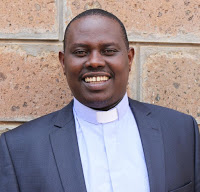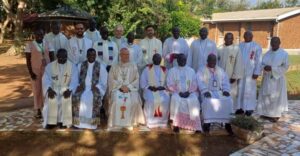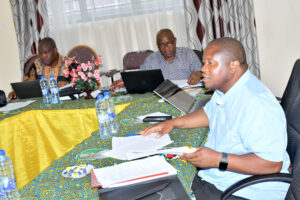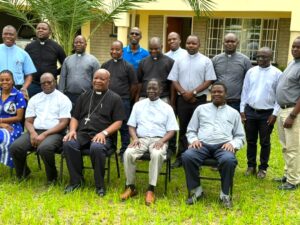AMECEA Engages in Empirical Studies Examining Effects of Laudato Si’ on Integral Human Development

Rev. Fr. Paul Igweta, Coordinator AMECEA Department of Promotion of Human Integral Development
Sr. Jecinter Antoinette Okoth, FSSA
Ahead of the 20th Plenary Assembly for bishops in the Association of Member Episcopal Conferences in Eastern Africa (AMECEA) region, slated for next year in Tanzania to focus on ecology and care for our common home, Caritas and Justice and Peace Coordinators from the region are engaged in a study to analyze the effects of Pope Francis’ Encyclical letter Laudato Si on integral human development and are set to come up with a guiding document on formation of conscious and creating awareness to the people about the encyclical letter’s message.
Sharing about the empirical study with AMECEA Online in an interview Tuesday, May 11, the AMECEA Coordinator for the Department of Promoting Integral Human Development (PIHD) Fr. Paul Mung’athia Igweta said that the team aims to “interact with the people from various countries within the region to find out if they know about the existence of the Encyclical, what they know about it, how they evaluate it, and actions the region is taking and can take to practically implement the document.”
Fr. Igweta narrated that the Coordinators intend to apply the methodology of See, Judge and Act as they examine the effect of Laudato Si’ on the Integral Human Development which involves economic, social, political and environmental aspects and eventually the Coordinators to come up with a catechetical document which is simplified and easy to use.
According to AMECEA’s PIHD Coordinator, the team has developed tools which are in the process of validation from various groups including the coordinators, bishops, Secretaries General and they hope to include the pastoral theologians so the study can have a pastoral approach.
Besides Fr. Igweta said, “There is need to translate the tools into other languages that can be understood by the different countries in the region including Amharic, Swahili and Chichewa.”
In a recent online session updating members on the ongoing preparations, a lead researcher from the Catholic University of Eastern Africa (CUEA) Mr. Herbert Makinda said that the data collection instruments include interview guide for key informants, observation guide, focus group discussion (FGDs) guide, questionnaires for members of Small Christian Communities (SCC), for youths and children which will be administered physically and online.
He expressed the need for conducting the research saying that “the future of humanity, biodiversity and resources are at the critical moment towards both total collapse systemic depletion and devastation.”
“According to the Earth’s Charter, the “resilience of the community and the well-being of humanity depend upon preserving a healthy biosphere with its ecological systems, a rich variety of plants and animals, fertile soils, pure waters and clean air,” Mr. Makinda told the participants from different conferences within the region adding, “The global environment with its finite resources is a common concern of all peoples’ consequently, sustainable, smart, alternative and holistic change remains the best and immediate option.”
He referenced the words of Pope Francis in his Encyclical letter Laudato Si’ that everyone needs to be involved in caring for creation saying, “I urgently appeal, then, for a new dialogue about how we are shaping the future of our planet. We need a conversation which includes everyone, since the environmental challenge we are undergoing, and its human roots, concerns and affects us all.”
The Coordinators conducting the study anticipate to launch the complete document early next year prior to the bishops Plenary Assembly in July 2022.


